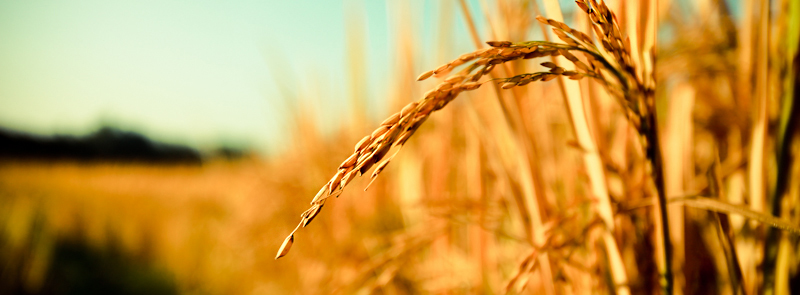
When It Occurs
Every April 14th or 15th
Timeline
Days Passed (1044)
# Hashtags
#Mesadi #MeshaSankranti
Mesadi - Vaisakhadi is a festive occasion dedicated to the harvest season, observed each year on either April 14th or 15th.
This Hindu celebration is characterized by vibrant festivities and marks a time of joy and gratitude for the harvest. Despite being a restricted holiday, both government offices and businesses typically remain open. Originally conceived as a gesture of thanksgiving to farmers for their dedicated efforts during the harvest, the festival traditionally symbolizes a new beginning, serving as a New Year in its own right.
Overview of Mesadi
-
Date and Occasion:
- Mesadi falls on the day the sun transits into the zodiac sign of Aries (Mesha), marking the start of the Hindu solar new year.
- This usually occurs in mid-April, around the 13th or 14th of April, depending on the position of the sun.
- It is also known as Mesha Sankranti or Mesha Samkrama, where "Mesha" refers to Aries and "Sankranti" means transition.
-
Regional Celebrations:
- The solar new year is observed across various states in India, but the specific traditions and names differ:
- In Punjab, it coincides with Vaisakhi.
- In Tamil Nadu, it is celebrated as Puthandu.
- In Kerala, it is observed as Vishu.
- In Odisha, the day is known as Maha Vishuva Sankranti or Pana Sankranti.
- In West Bengal, it marks the Bengali New Year, Pohela Boishakh.
- In Assam, it is celebrated as Rongali Bihu or Bohag Bihu.
- In Nepal, the day is called Bikram Samvat New Year.
- The solar new year is observed across various states in India, but the specific traditions and names differ:
-
Astronomical Significance:
- Mesadi marks the transition of the sun into Mesha Rashi (Aries), which signifies the beginning of a new solar year in the Hindu calendar.
- Unlike the more common lunar calendar festivals (such as Diwali or Holi), this observance is tied to the solar cycle, aligning with the sun’s movements rather than the moon’s phases.
Cultural and Regional Importance
- The day is a time of renewal, and it represents the start of the harvest season in many parts of India.
- In the states where Mesadi is celebrated, the day holds cultural significance and is marked by rituals, prayers, and festivities to welcome the new year and invoke blessings for prosperity.
- Vaisakhi in Punjab is a major event coinciding with Mesadi, celebrating both the solar new year and the harvest festival of the Rabi crop. It is also historically significant for the founding of the Khalsa by Guru Gobind Singh.
- In Tamil Nadu, Puthandu is observed with traditional feasts, house cleaning, and setting up Kanni (auspicious items) to bring good fortune in the coming year.
- In Kerala, Vishu is observed with the tradition of Vishu Kani, where people view an arrangement of auspicious items first thing in the morning to ensure a prosperous year ahead.
Rituals and Traditions
-
Festive Preparations:
- People clean their houses, decorate with rangolis, and offer prayers to deities for a good harvest and a prosperous year.
- In some regions, it’s common to wear new clothes, visit temples, and prepare traditional foods as part of the celebrations.
-
Worship and Offerings:
- Temples are visited for special pujas and prayers, and people seek the blessings of Surya Devta (Sun God) as a mark of gratitude and to welcome the new year.
- In certain states like Odisha and West Bengal, offerings and charity play a significant role, where people provide food, water, and clothes to the needy as an act of goodwill for the new year.
-
Traditional Foods:
- Festive meals are an integral part of the celebration. Different regions have specific foods associated with the solar new year:
- In Tamil Nadu, traditional dishes include mango pachadi, a preparation combining sweet, sour, and bitter flavors, symbolizing the different facets of life.
- In Kerala, a lavish feast known as Sadya is prepared with several dishes served on a banana leaf.
- In Bengal, special meals such as panta bhat (fermented rice) with fish are consumed as part of the new year's celebration.
- Festive meals are an integral part of the celebration. Different regions have specific foods associated with the solar new year:
Significance of Mesadi in Agriculture
- Mesadi also marks the beginning of the agricultural year in several regions. The transition of the sun into Mesha Rashi is considered an auspicious time for farmers to begin new activities related to sowing crops and preparing the land for the new season.
Spiritual Significance
- The transition of the sun into the zodiac sign Aries symbolizes a time of renewal and new beginnings. It is seen as a time to reflect on the past year and prepare for the future with optimism and hope.
- Some Hindu texts mention Mesadi as a time for spiritual renewal, where prayers and rituals are performed to purify the soul and seek divine guidance for the year ahead.
Regional Variations
While Mesadi or Mesha Sankranti itself might not be a widely recognized pan-Indian festival like Diwali or Holi, it is intricately tied to the regional celebrations of the solar new year. Different regions of India celebrate this event in their unique cultural styles, reflecting the diversity of traditions and rituals across the country.
Conclusion
Mesadi or Mesha Sankranti is an important solar festival in India that heralds the start of the new year according to the solar calendar. It is celebrated with great joy and enthusiasm, particularly in agrarian communities, as it marks the beginning of the new harvest cycle. Across various states, the festival takes on different names and traditions, showcasing the rich cultural diversity of India.


